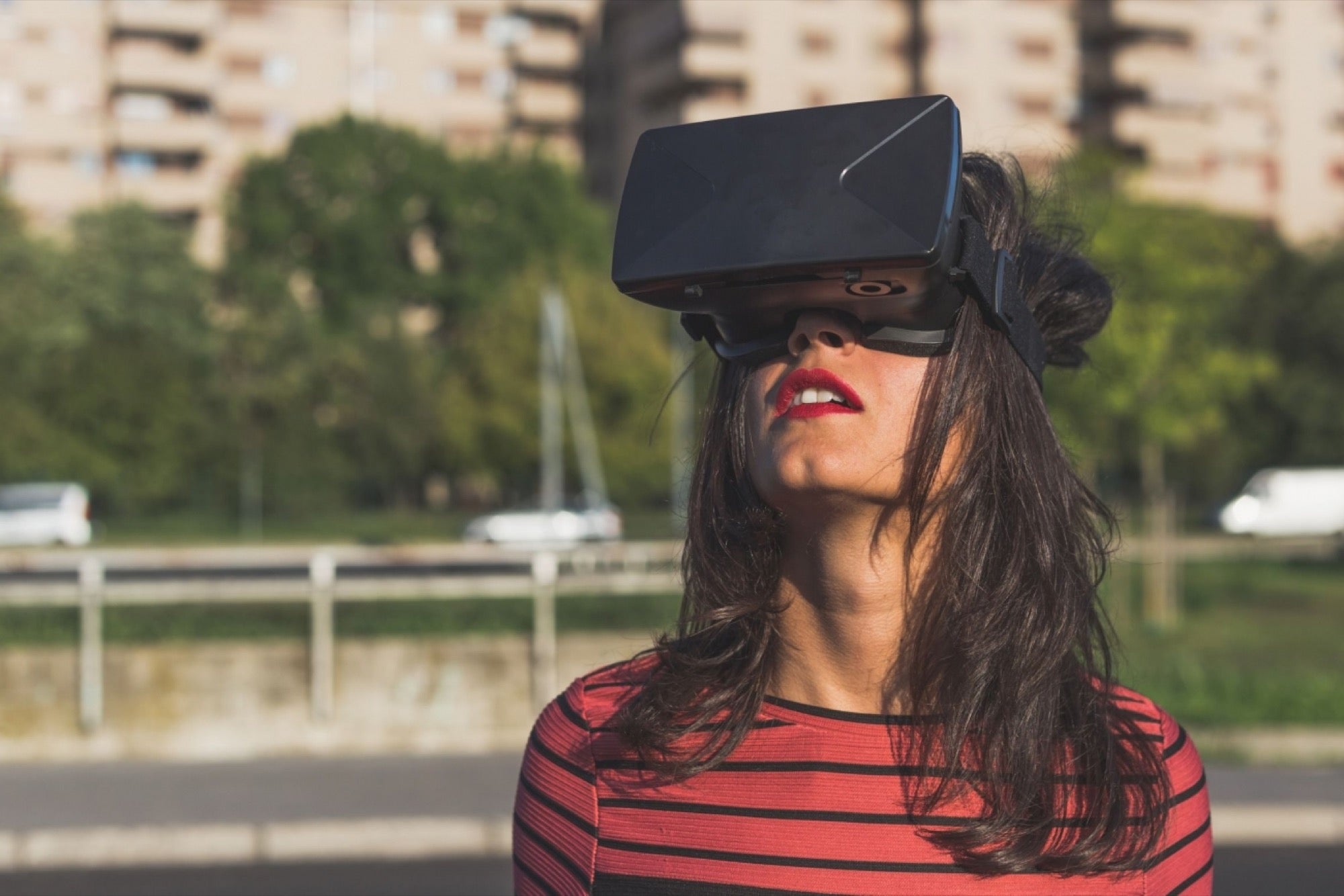What are the Legal Issues That Stare at Augmented/Virtual Reality? VR/AR presents many challenges to the existing doctrines and policies which need to be examined closely to adapt to changing times
Opinions expressed by Entrepreneur contributors are their own.
You're reading Entrepreneur India, an international franchise of Entrepreneur Media.

In 2016, a major sensation prevailed in the world with the release of Pokemon GO, an augmented reality application wherein people could catch, train and fight other Pokemon which are perceived only by them. Though the game was a major hit for the most part of 2017 too, what is less known is the fact that the AR game also led to numerous thefts, robberies, assaults, driving offences and accidents. As the name "virtual reality' suggests, the simulation of reality in the virtual world is accompanied by a host of complex legal problems, which keep increasing as the technology integrates with the daily lives of the individuals.
Pokemon GO was only the first successful exposure to the technology of Augmented Reality which allowed digital content to merge with the real world. However, it is certainly not the last of its genre. AR and VR continue to expand at a breakneck pace and it won't be long before the amount of virtual exposure would exceed real exposure. While the use of AR/VR in daily use eases our lives to a great extent, they also present a range of classic legal questions unsolved. Recent reports indicate that users of AR/VR technologies have used it to commit murders, defraud others and even injure themselves.
Related : How Augmented Reality/Virtual Reality is Transforming Lives
AR/VR Legal Scene Globally
The settled dispute between Facebook and game maker ZeniMax requiring Facebook to pay USD 500 million in damages for "stealing the source code' is just one of the many examples of the potential for infringements that VR/AR possesses. While protection of trade secrets is just one part of the problem, what is really important to consider is the impact it could make on consumers. Last year, two perpetrators were convicted for engaging in illegal betting on a FIFA VR game referred as FUT Galaxy. In 2013, an English VR gamer was caught for stealing virtual property which apparently possessed huge value in a virtual game called "RuneScape', by hacking into profiles of other gamers. These cases become more interesting since there does not exist any laws governing in-game virtual reality actions and therefore leave consumers without any redress. What legal issues really arise through the use of AR/VR? Some of them are given below-
1. Intellectual Property Rights
The use of intellectual property in the virtual world could be one the major causes of concern for owners of such IP rights. For instance, in a renowned VR game called "Second Life', players can visit a number of public places and use merchandise which could violate trademarks and copyrights of various brands existing in the real world. In fact, VR systems allow users to virtually import photographs, music, brand names and otherwise IP protected material into their virtual experiences without obtaining necessary permissions from the owner of such intellectual property. Furthermore, there are several jurisdictional problems while enforcing claims against such VR users, since VR users log in from several countries whose IP laws may differ widely from one to another. The extent of potential intellectual property infringement is remarkable since VR creators can create a whole virtual world comprising of images, virtual property and other contents through the VR system.
On account of deeply personal nature of VR experiences and the creation of identity in the alternate world, there might be a need in future for IP laws to rebalance the assignment of the separate VR platforms or users' IP rights.
For instance, while incorporating photographs, music, names of the brand or their logos, traditional IP laws stipulate obtaining permission from the owner regarding applicable rights. However, in several jurisdictions across the world (such as US, India and several other nations), use of trademarks "in commerce' is an essential ingredient to constitute trademark infringement. Thus, the user using a logo in VR may escape liability by claiming "no commerce' exception under trademark laws. Similar problems arise with the "fair use' exception under copyright laws of several jurisdictions, wherein there could be an infringement of original works through derivative works on VR platforms.
Related : The Real History of Virtual Reality Has its Roots in Indian Mythology
2. Virtual Crimes
The psychological effects of immersion in virtual reality experiences can lead to ethical challenges and criminal issues in assessing virtual crimes. Research indicates that VR can lead to particular kinds of emotions and result in sufferings since VR experiences may seem real to users even though they are being done in a virtual environment. Such crimes include virtual groping, cyber assault, stealing of virtual property, illegal betting with virtual money, identity theft, strobe lighting and mere indecent exposure such as nudity, orgy etc.
Though one need not necessarily worry about being murdered or raped in virtual space, the absence of actual consequences of engaging in such acts could result in more people opting for it. Further, there are also associated psychological issues when individuals are continuously devoid of law and order and could lead to actual disorder in real life. For instance, for a female VR player to be groped virtually is the same as being groped in real life, due to severe psychological trauma inflicted upon her. It might even get worse in future with body suit technology developing to a point where AR/VR users could actually feel kicks/punches or touch that they incur in the virtual world.
3. Virtual Privacy
The issue of privacy is one of deep importance and possesses immense weight in combating virtual privacy violations. Currently, there exist data protection norms in approximately all Asian countries which are equally applicable to VR/AR hardware, software and content providers so as to ensure they remain compliant with these laws. However, many VR gaming platforms store and process substantial amounts of personal data of its users in furtherance of their advertising and business models. For instance, the amount of reaction time by the user can be used as health data and sold to interested entities. Users' may also share details pertaining to their location, age, race, preferences etc. which form their digital footprint and can be used in their identification in real life. Unfortunately, privacy regulations today are not mature enough to deal with such issues.
Remarkably, privacy invasion in virtual reality is highly discussed amongst the researchers. Joshua Kopstein from the Intercept in a discussion argues that corporations and governments will get unprecedented power by tracking emotions, expressions and physical behaviour. Some jurisdictions have, however, been vigilant to ensure proper accountability is maintained, with a US Senator asking Facebook for data accountability obtained through use of its VR headset Oculus. But claims to VR privacy violations by these companies are still far-fetched since users' normally consent to terms and conditions before using such devices which give such companies a legitimate right to collect, share and use such data.
Related : How Virtual Reality is Changing the Way You Construct your House
What Must Be Done, Then?
VR is an emerging field of technology which makes any legislative attempt to regulate it wary to several errors. Further, it must be kept in mind that a legislation vigorously protective in nature could also stifle with the evolution of technology. In such a circumstance, self-regulation by VR companies themselves by adhering to ethical and legally sound policies may be the best solution currently available.
In case of privacy regulation, a proactive approach by governments of various jurisdictions could be instrumental in setting the limits on the type of personal data that can be collected, the extent of it and ways in which it can be used. A wider interpretation of informational privacy is also necessary by the judicial systems, which will facilitate further privacy regulations.
In case of tortious claims, intellectual property violations and criminal laws, an overarching regulation has the possibility of undermining the attractiveness of VR. The extent of these violations is so vast that it is unclear to what extent novel issues can emerge. In such a circumstance, the "wait-and-see' approach could be adopted and issues be resolved on a case by case basis. Though it is unclear where the technology is heading so far to measure and determine the extent of practical solutions possible, some crucial points to be noted are given below-
- Defining Liabilities IP holders must state specifically in the contract arrangement with VR content creators the ownership and liability arising in case of breach/unfair use of intellectual property rights/other rights.
- SelfRegulation- Selfregulation provides scope for VR content providers to frame industryfriendly policies and participate actively in lawmaking process in VR sector. Hence, they must take proactive steps in formulating legally and ethically sound strategies in dealing with infringement claims.
- Fair use standard The development of VR in coming years will likely see more cases of violation of "fair use standard'. Hence, corporations and governments must come together to formulate industryspecific standards for fair use doctrine.
There is no doubt that legislation must always be anticipative of innovation and must not precede it. VR/AR presents many challenges to the existing doctrines and policies which need to be examined closely to adapt to changing times. The visceral nature of virtual/augmented reality will present notable roadblocks and question the fundamental norms of freedom and harm in the real and virtual world. We must, therefore, be ready to tackle them.










